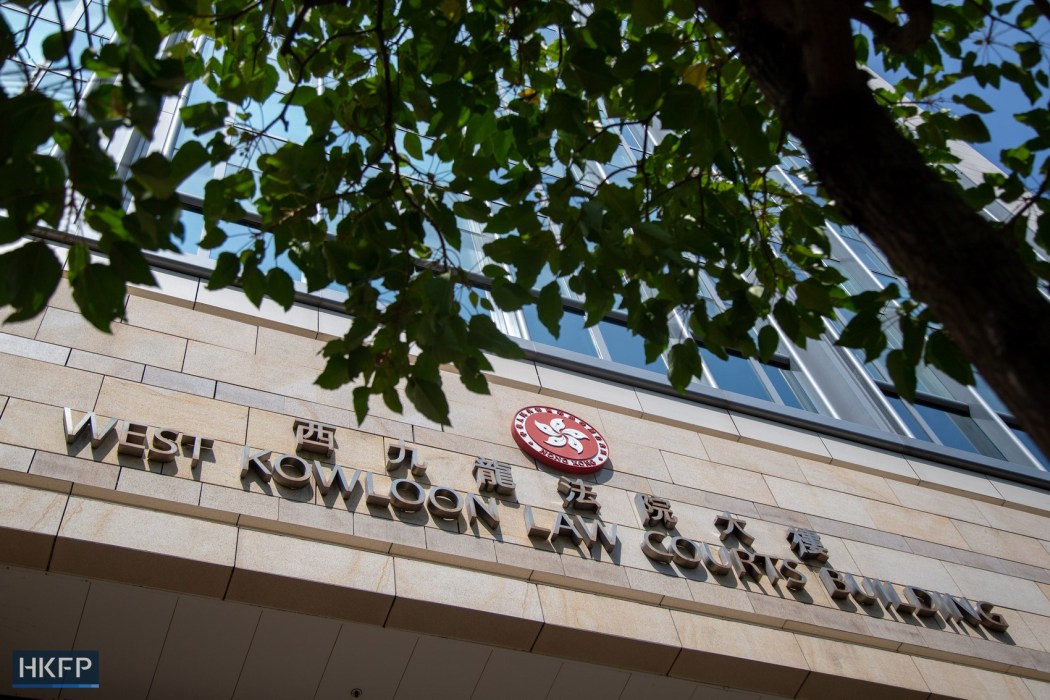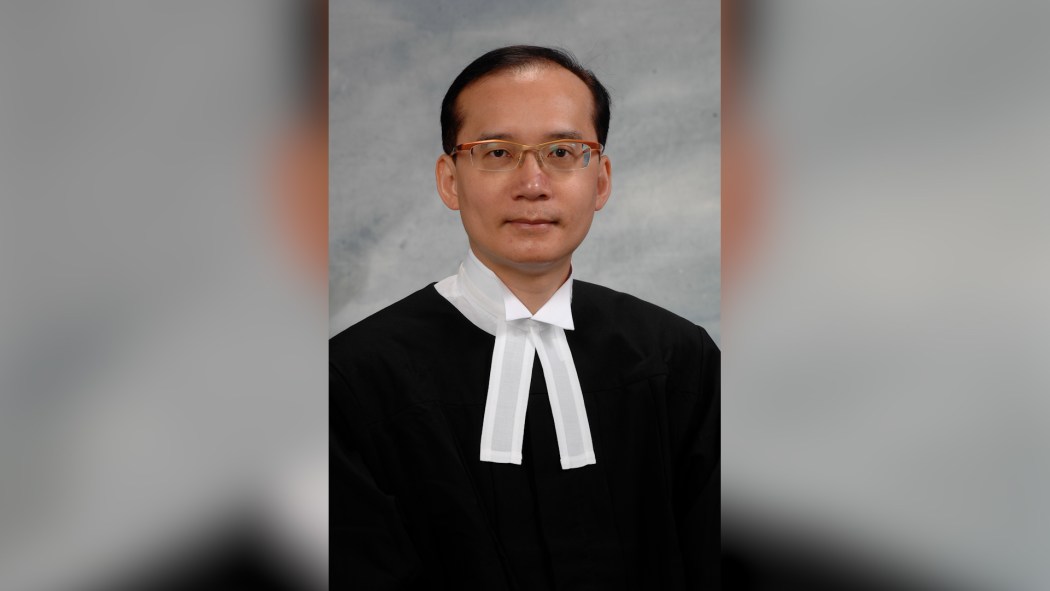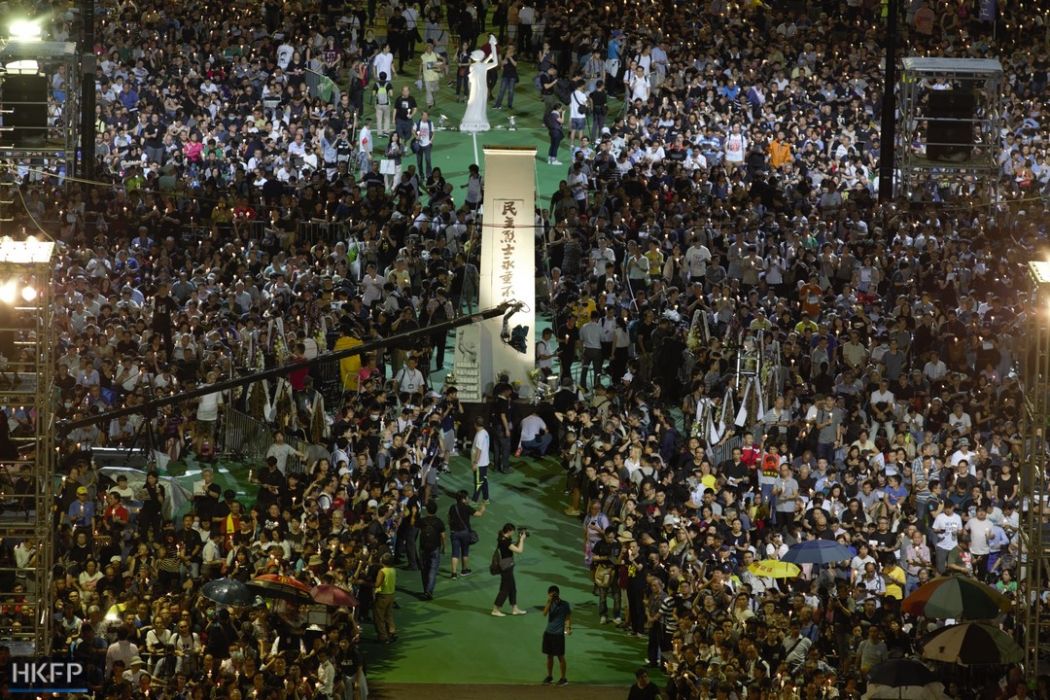Hong Kong activist Chow Hang-tung has been barred from using the phrase “Tiananmen massacre” during a national security trial, with a magistrate instead urging her to use “proper terminology.”
Chow, who was the vice-chairperson of the group behind Hong Kong’s annual Tiananmen vigils, the Hong Kong Alliance in Support of Patriotic Democratic Movements of China, appeared before Principal Magistrate Peter Law at West Kowloon Magistrates’ Courts on Wednesday as her trial resumed after an almost two-month adjournment.

Chow and two other former standing committee members of the Alliance, Tang Ngok-kwan and Tsui Hon-kwong, stand accused of not complying with a national security police request for information.
Two other defendants in the case, Simon Leung and Chan To-wai, pleaded guilty and were sentenced to three months in jail.
Law, one of Hong Kong’s handpicked national security judges, made the decision to bar Chow from saying “Tiananmen massacre” as she was cross-examining Hung Ngan, who is now acting senior superintendent of the national security police.
Chow was asking Hung if he knew when the Alliance was formed when prosecutor Ivan Cheung objected to the barrister’s use of the phrase. Cheung suggested Chow use the term “June 4th incident” instead.
Law said he would not “allow” Chow to say “Tiananmen massacre,” adding “we are not putting anything [political] in the court.” He then asked Chow to use “proper terminology in [a] neutral form.”
“I do protest to the term Tiananmen incident, what is a massacre cannot be downgraded to an incident, this is not a neutral term,” Chow said in response.

The prosecution also objected to Chow’s use of “the killing” when referring to June 4, 1989, saying that the police application for a notice requesting information from the Alliance did not mention any killing.
“Then how do I describe it? That some people died on that day?” Chow asked, after the magistrate agreed with Cheung and asked the barrister not to say “the killing.”
The Alliance, which disbanded in September last year, organised the city’s annual vigils commemorating victims of the Tiananmen crackdown.
It is estimated that hundreds, perhaps thousands, of protesters died in Beijing on June 4, 1989, when the People’s Liberation Army was deployed to end months of student-led peaceful demonstrations.
Hong Kong was one of the few places in China where victims of the crackdown could be publicly commemorated. Mentions of the incident are mostly censored in mainland China, with families of the victims closely monitored by authorities around the anniversary.
‘Hide and seek’
Apart from discussing which phrases were allowed in court, the debate on what information was allowed to be disclosed during the trial continued on Wednesday.

Under the Beijing-imposed national security law, the police chief, upon approval from the secretary for security, has the power to serve a notice to a “foreign agent” requesting information.
Prior to the trial, the prosecution was ordered to disclose materials such as search warrants to the defence, but with some details redacted. The order came after the defence demanded that the prosecution disclose which foreign organisations or countries the Alliance was allegedly working for.
The prosecution claimed that disclosing such information would “harm public interest,” and applied for Public Interest Immunity (PII) to allow it to conceal such information.
It was later revealed during the trial that the Alliance was thought to be working as an agent for and received HK$20,000 from the unnamed “Organisation 4.”
Chow on Wednesday asked Hung to confirm whether Organisation 4 was the Japan branch of the Federation for a Democratic China.

The prosecution objected to Chow’s question and the magistrate ruled that the witness did not have to answer the question. Hung declined to answer.
Another question from Chow on when Organisation 4 was founded was also objected by the prosecution.
Chow later produced a screenshot of the Federation’s website, which was submitted to the court by the prosecution when objecting to her application for bail in October last year.
The barrister was stopped from asking Hung whether he had come across the statement during his investigation.
The magistrate, who said that the statement in the screenshot did not mention the Alliance, asked Chow what the relevance of the statement was.
Chow said that she had a “great difficulty” in presenting her case, and that the whole proceeding was “playing hide and seek,” as she could not confirm that the federation was Organisation 4 and so was unable to fully present her case.
The trial will continue on Friday.
Support HKFP | Policies & Ethics | Error/typo? | Contact Us | Newsletter | Transparency & Annual Report | Apps
Help safeguard press freedom & keep HKFP free for all readers by supporting our team
























